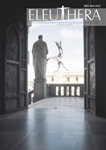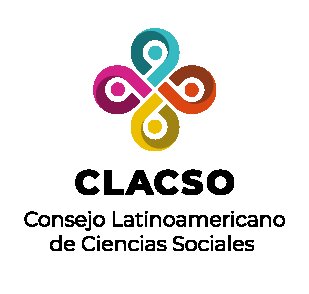Autores
Resumo
Resumen: Este artículo es el resultado de la investigación realizada por la sub-línea: “Metodologías re-generativas”, bajo la modalidad de investigación aplicada con un diseño y enfoque educativo, vinculada al proyecto de extensión: “Transición al ciclo universitario”, como apoyo al sistema tutorial del programa de Trabajo Social, de la universidad de caldas; igualmente se enmarca, con aportes significativos, en la línea de investigación: “Autopoiésis y cognición” con la participación del semillero de investigación del mismo nombre.
Dentro del marco de lo que denomino pensamiento complementario o mirada desde ángulos diferentes que permiten la conmensurabilidad teórica, esta investigación produce conocimientos en torno a: I) el análisis propositivo y crítico del tema objeto de conocimiento desde su soporte teórico como “emergencia ecológica”, concepto que se acuña y soporta desde el paradigma eco-sistémico; ll) la propuesta de un método educativo para la intervención en Trabajo Social como innovación tecnológica o “Didáctica narrativa-lúdicaemocional”, que aporta a las discusiones contemporáneas de la profesión, que en boga, busca nuevas metodologías de acción; III) re-significar el sistema de afrontamiento de la población participante, como acción formativa, en un proceso propuesto como intervención breve midiendo su impacto.
Es de reconocer que este trabajo contribuye, como marco de referencia a alimentar las discusiones contemporáneas de la profesión en la búsqueda de metodologías integrales o regenerativas, como asunto muy difundido en su intencionalidad pero, poco diseminado desde la investigación, se resalta, en general, el valor innovador del diseño utilizado, además de la estrategia como propuesta para dar salidas a las necesidades de la investigación social aplicada en el abordaje desde el Trabajo Social no clínico de un área poco trabajada: la emergencia ecológica. Sin olvidar, su contribución al proyecto de extensión “Transición al ciclo universitario” en el marco del Sistema Tutorial del programa de Trabajo Social de la Universidad de caldas, y el impacto social como fuente de desarrollo humano para el desarrollo social, local y su posible re-aplicabilidad nacional e internacional para la profesión.
Referências
De Saint Paul, Josine, OCONNOR, Joseph & SEYMOUR, John. (1992) Introducción a la programación neurolingüística. Barcelona: Editorial Urano.
Dilts, Roberts. Creación de Modelos con Programación Neurolingüística. Barcelona: Editorial Urano. 1999.
Duque, Aura Victoria. (2007) Perfil estudiantes primer periodo 2007. Inédito. Manizales. Universidad de Caldas.
--------. (2007-2008). La transición al ciclo universitario en estudiantes de Trabajo Social. Proyecto de extensión. Manizales: Universidad de Caldas.
--------. (2008). Curso de mitología de Trabajo social (apuntes de clase). Manizales: Universidad de Caldas.
Giddens, Anthoni. (1994). Modernidad e identidad del yo. El yo y la sociedad en la época contemporánea. Barcelona: Península.
Goleman, Daniel. (1996). La inteligencia emocional. Por qué es más importante que el cociente intelectual. Buenos Aires: Javier Editores.
Jaramillo, Leandra. (2008). Proyecto de práctica institucional. Autotélia del cambio hacia una cartografía del afrontamiento. Inédito. Manizales: Universidad de Caldas.
Lazarus, Richard. (1984). “Estilo represivo de afrontamiento”. En: http://iecardona. blogspot.com/2007/05/afrontamiento-emocional.html. [Enero de 2008].
Madrid López, Nacho. (2009). “La autorregulación emocional como elemento central de la inteligencia emocional”. En: http.//www.psicologia-online.com/colaboradores/nacho/ emocional.Shtml. [Febrero de 2009].
Martínez López, Nieves; Cabrero García, Julio & Richart Martínez, Miguel. (2009). “Metodología de la investigación l”. En: http//perso.wanadoo.es/aniorte-nic/apunt_metod_ investigac4_5. [Mayo de 2009].
Mccubbin, H. I; Larsen, A. & Olson, D. H. (1989). Escala de evaluación personal del funcionamiento familiar en situaciones de crisis. Traducción de: Ángela Hernández Córdoba. Bogotá: Universidad Santo Tomás.
Morin, Edgar. (1998)- Introducción al pensamiento complejo. Barcelona: Gedisa. O’Connor, Joseph & Seymour, John. (1992). Introducción a la programación neurolingüística. Barcelona: Urano
Olson, David y Col. (1989) Inventarios sobre familias. Traducción de Ángela María Hernández. Estados Unidos: Universidad de Minnesota.
PIAGET, Jean. (2000). La equilibración de las estructuras cognitivas. Problema central del desarrollo. México: Siglo XXI Editores.
PNUD. (2003). Informe Desarrollo Humano para Colombia 2002. Bogotá: PNUD. PROGRAMA DE TRABAJO SOCIAL. (2005). Portafolio Programa de Trabajo social. Manizales: Universidad de Caldas.
--------. Propuesta para el fortalecimiento del Sistema de Tutorías. Documento de Trabajo. Manizales: Universidad de Caldas 2006.
Toro-Lira, Ernesto. (1998). Cómo conducir la cabeza. Manual de PNL. Madrid Editorial Mandala Ediciones S.A.
UNIVERSIDAD DE CALDAS. (2001). Propuesta Plan de Desarrollo. Manizales: Universidad de Caldas.
--------. (2001).--------Proyecto Educativo Institucional. Manizales: Universidad de Caldas.

 PDF (Español)
PDF (Español)
 FLIP
FLIP

























